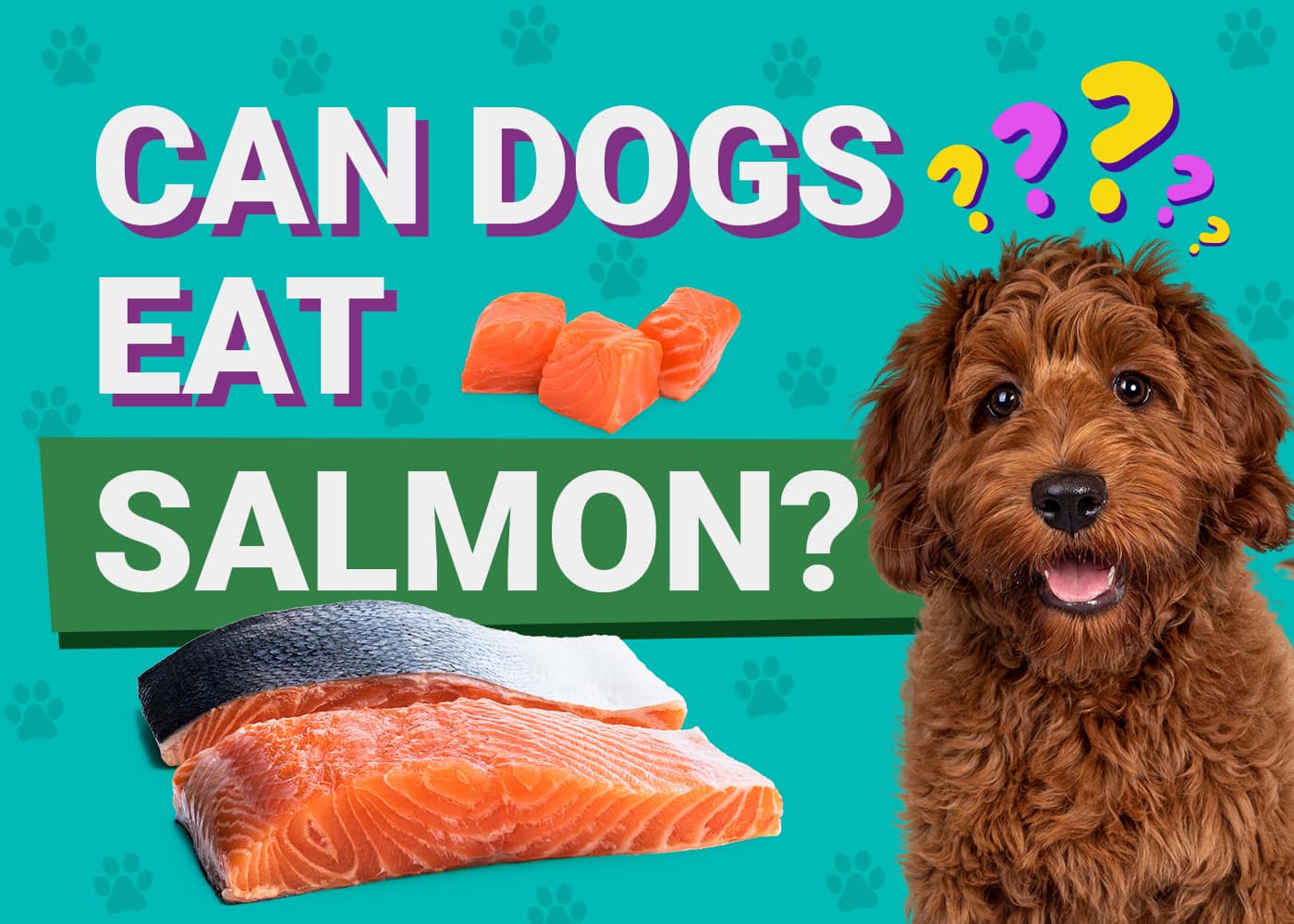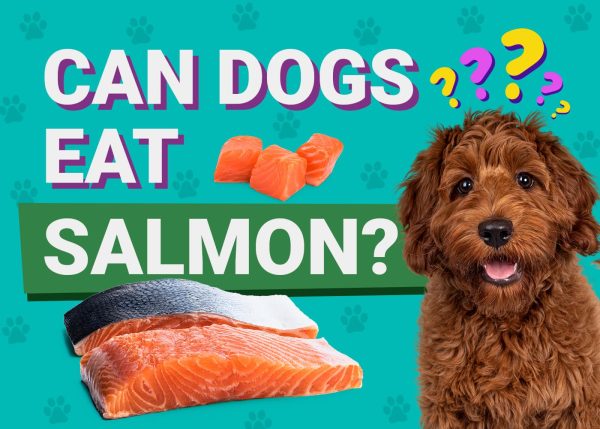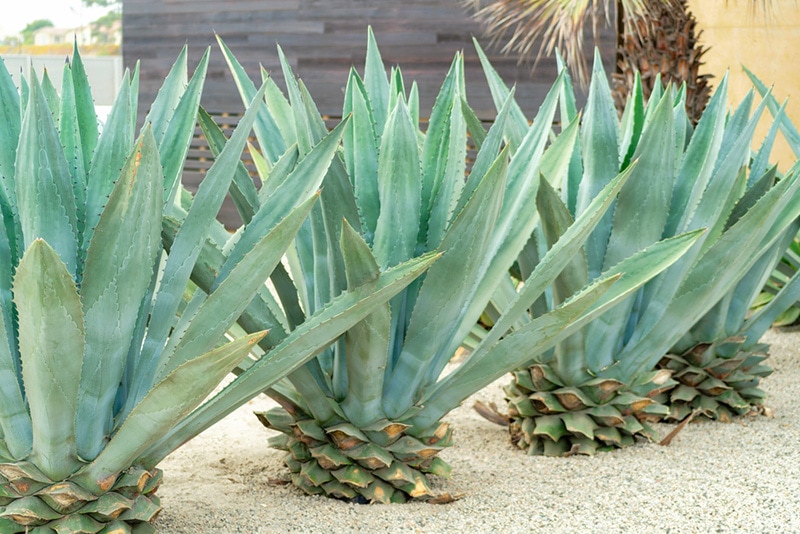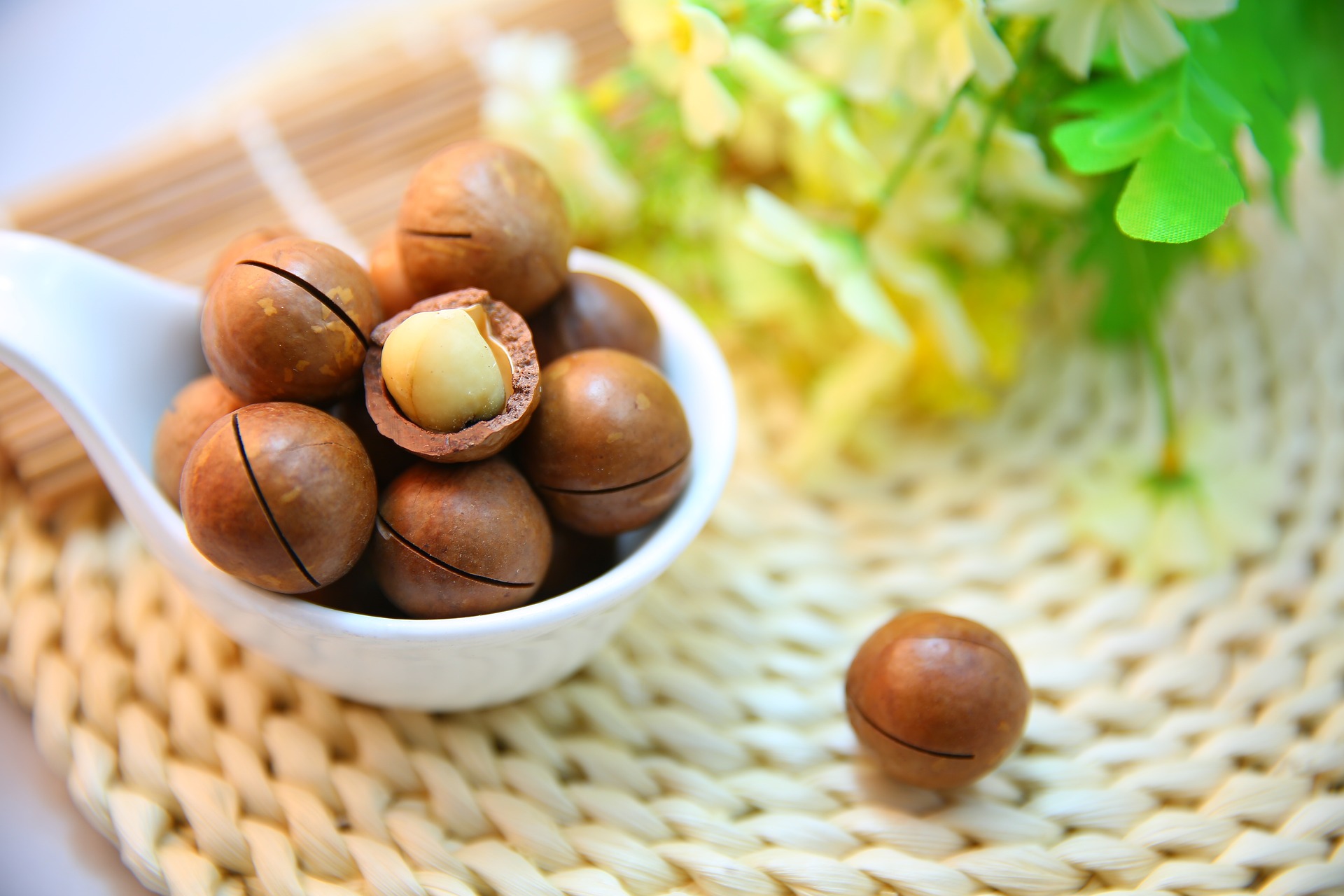Salmon is packed full of healthy nutrients and is considered by some to be one of the healthiest protein sources since it provides essential vitamins and is a great source of omega-3 fatty acids. But what about raw salmon? Is it safe to give your companion a bite of salmon sushi or a taste of your uncooked salmon steak before you throw it on the grill? While cooked salmon is generally fine for dogs, raw salmon can harm your pet since it sometimes contains Neorickettsia helminthoeca, a bacteria that can cause salmon poisoning.1 Also, raw products sometimes have bones that can get stuck in pets’ digestive tracts.
What Is Salmon Poisoning?
Salmon poisoning is a bacterial infection.2 It usually occurs when dogs eat raw or undercooked salmon. But it can also be seen when wolves, dogs, coyotes, and foxes consume raw trout and salamanders, as many of these marine creatures host parasites.
When dogs eat raw salmon, they often ingest parasites such as flatworms, which are sometimes infected with Neorickettsia helminthoeca bacteria. Dogs can become ill if they eat uncooked salmon containing Neorickettsia helminthoeca-infested flatworms.
Flatworms attach to dogs’ intestines, and the bacteria are then released into dogs’ bloodstreams. Black bears and foxes can also become ill from ingesting infected raw marine products, but the bacteria usually only cause gastrointestinal upset in humans.
Signs don’t usually show up immediately— it can take up to a week for dogs to become ill after eating infested raw fish. Common signs of salmon poisoning include vomiting, diarrhea, weight loss, tremors, and weakness. Without treatment, the infection can result in death within a few weeks.3
Veterinarians diagnose salmon poisoning based on a physical exam, blood tests, and sometimes lymph node biopsies. Treatment usually involves supportive care and antibiotics, and most dogs recover and do just fine if treatment begins early enough.
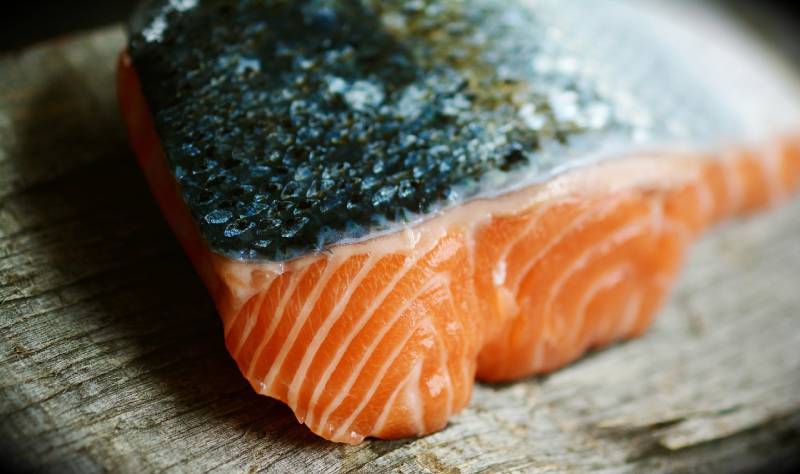
Is Cooked Salmon OK?
Cooked salmon is a great canine treat, as it’s relatively low in calories and fat but packed full of protein and essential B vitamins. It also has omega-3 fatty acids, which are essential for optimal canine skin and coat health. Dogs can eat cooked salmon as long as it’s prepared with canine dietary needs in mind; it should have no extra fat, salt, or seasonings. To eliminate the chance of a bacterial infection, cook it until the salmon’s internal temperature reaches 145ºF. Make sure to remove all the bones before giving any fish product to your dog, and limit your pet’s treats, store-bought and homemade, to around 10% of their diet to prevent unintended weight gain.
What About Canned Salmon?
Canned salmon packed in water is acceptable as an occasional treat. It even provides many of the same health benefits as fresh salmon, including omega-3 fatty acids and B vitamins. However, you should avoid products packed in oil or brine. Oil-packed salmon often has too much fat for dogs, and briny choices are loaded with salt.
So Can I Feed My Dog Cooked Salmon for Meals?
Dogs are healthiest when eating a balanced diet designed with their specific needs for fat, protein, and select nutrients in mind. Commercial dog food that adheres to the guidelines established by the American Association of Feed Control Officials is designed to meet general canine nutritional requirements and is usually the easiest way to ensure your pet is getting the right nutrients.

Dishes destined for human consumption frequently feature ingredients such as garlic and onions that can be toxic to dogs, even in small amounts. Keeping pets away from human foods drastically lowers the chance of spending a weekend afternoon worrying about whether you need to call the emergency poison control number because your pet ate a bowl of salmon stew.
Dogs that snack on food prepared with human tastes in mind often consume too many calories, which can lead to weight gain and obesity.
Canine obesity is one of the most common preventable diseases. Around 40– 45% of North American dogs between 5–11 years old are overweight. While a bit of extra weight may not appear to be a big deal, it is a troubling health issue since overweight dogs are more likely to develop chronic conditions such as diabetes, arthritis, and heart disease. Some research suggests that overweight dogs have shorter lifespans than pets whose weights remain within appropriate ranges for their breed, size, and age.
Conclusion
Dogs shouldn’t eat raw salmon since it can lead to a dangerous bacterial infection that can be fatal if not appropriately treated. But cooked salmon is a totally different ballgame. It’s packed full of omega-3 fatty acids, B vitamins, and antioxidants and makes a fantastic canine treat. Just make sure the fish you give your dog has been thoroughly cooked and deboned. Canned salmon packed in water is a convenient option, but try to limit your dog’s treats to around 10% of its diet to ensure it maintains a healthy weight.
Related Reads:
- Can Dogs Eat Smoked Salmon? Vet-Approved Benefits & Risks
- Can Dogs Eat Salmon Skin? Vet Approved Facts and FAQ

